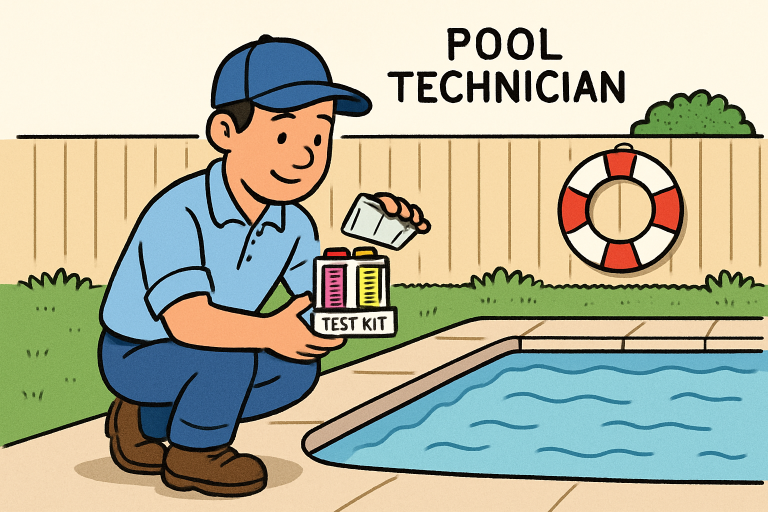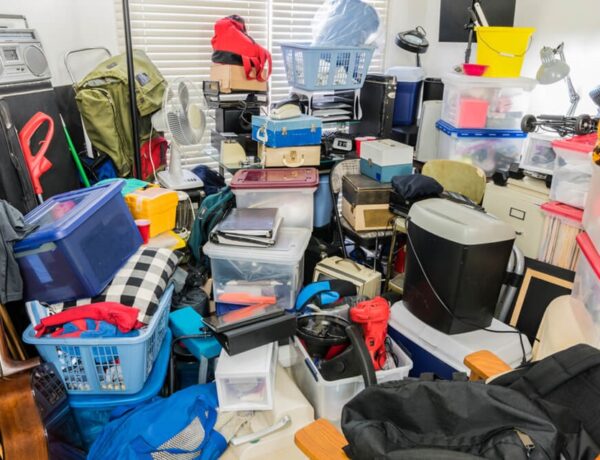Table of Contents
Backyard pools provide hours of fun and relaxation, but demand careful attention to keep them enjoyable and hazard-free. Regular visits from pool technicians are essential to maintaining a healthy swimming environment. These experts do much more than skim debris—they monitor chemical levels, inspect vital equipment, and ensure that all safety measures are up to date to protect you and your loved ones.
Proper pool care can be daunting, especially for new pool owners. From water chemistry to routine maintenance, many critical factors keep your pool inviting and, more importantly, safe for everyone. Skilled pool technicians take on these responsibilities, providing peace of mind while helping pool owners avoid costly mistakes or dangerous conditions that could put swimmers’ health at risk.
By hiring trained professionals to handle routine inspections and pool care, homeowners reduce the risks of waterborne illnesses and equipment malfunctions that can lead to unsafe swimming conditions. Expert maintenance is crucial for long-term pool durability and a safer environment for all guests.
Beyond general upkeep, specialized services like reliable leak detection are vital to professional pool care. Early identification and repair of leaks protects your pool and property from water damage and excessive utility costs.

Balancing Water Chemistry
Consistently safe and clean pool water begins with perfectly balanced chemistry. Pool technicians regularly test for chlorine, pH levels, alkalinity, and calcium hardness, making informed adjustments to eliminate bacteria and algae threats. Imbalanced water can cause a range of problems—itchy skin, red eyes, and, more seriously, increased infection risk due to harmful microorganisms.
The Centers for Disease Control and Prevention (CDC) underscores the importance of proper pool disinfectant and pH levels for germ control. A pool that stays within these recommended parameters protects swimmers from waterborne illnesses and supports the pool’s long-term integrity. See the CDC’s Healthy Swimming resources for a deeper insight into healthy pool standards.
Regular Equipment Maintenance
Pumps, filters, skimmers, and heaters work together to keep pool water flowing cleanly and evenly. If these components fail, stagnant water and poor filtration can result in conditions that facilitate bacterial growth and make the pool unsafe. Pool technicians perform thorough checks and routine maintenance to prevent unforeseen breakdowns and expensive repairs.
Maintaining equipment also improves energy efficiency, ultimately lowering utility bills and extending the lifespan of your pool’s mechanical system. A professional regularly inspecting your equipment ensures that hidden issues—like faulty valves or impending pump failures—are caught and remedied early. According to Consumer Reports, routine checks significantly prolong equipment life and enhance safety.
Implementing Cleaning Routines
Even with the best filtration system, dirt, leaves, and debris inevitably enter backyard pools. Technicians use specialized tools to skim surfaces, vacuum pool floors, and brush pool walls, targeting areas where algae and other contaminants may build up. Keeping these surfaces clean looks appealing and prevents the growth of slippery biofilm, which can lead to dangerous slips and falls.
Physical cleaning complements chemical treatments, reducing maintenance costs and ensuring compliance with local health codes. Routine cleaning is especially critical after storms, heavy use, or events that introduce extra debris or bacteria to the pool.
Enforcing Safety Measures
Safety layers are fundamental to pool management. Professionals check that gates and fences are intact, ensure safety gear like life rings, pool hooks, and covers is accessible, and inspect ladders or diving boards for stability. Technicians also enforce poolside rules—such as refraining from running, diving in shallow water, or swimming without adult supervision—to reduce injury risks.
Routine inspections ensure dangerous conditions—like broken tiles, slippery steps, or malfunctioning pool lights—are quickly addressed. For more advice on preventing accidents, read WebMD’s pool safety tips.
Educating Pool Owners
Effective pool care involves collaboration between technicians and owners. Between service visits, professionals teach pool owners essential upkeep tasks, such as using at-home test kits, recognizing when chemical or equipment issues may develop, and adjusting pool covers for various weather conditions.
Homeowner education creates an extra layer of vigilance that promotes year-round pool safety. Understanding the essentials of pool chemistry and the warning signs of developing issues leads to a quicker response and less downtime for the pool.
Emergency Preparedness
Being prepared for emergencies is a hallmark of a well-maintained pool. Pool technicians recommend stocking first aid kits, ensuring the availability of reach poles and rescue equipment, and maintaining clear signage for pool rules and emergency procedures. Many professionals also suggest that homeowners become CPR certified, empowering them to respond quickly and effectively if an accident occurs.
Regularly practicing emergency protocols with family or guests ensures everyone knows how to react, whether for a slip, a fall, or suspected water contamination. Keeping emergency gear visible and accessible can make a significant difference in a critical moment.
Conclusion
Professional pool technicians step beyond basic cleaning, delivering vital services that protect pool users and extend the life of your backyard oasis. Their attention to water chemistry, routine maintenance, and unwavering commitment to safety practices create a reliably healthy environment for swimming and relaxation. When homeowners pair routine expert care with ongoing education and preparedness, they make their backyard pool a source of joy—never worry—all season long.





No Comments